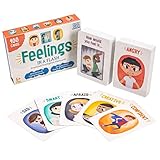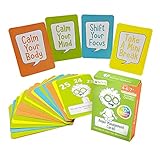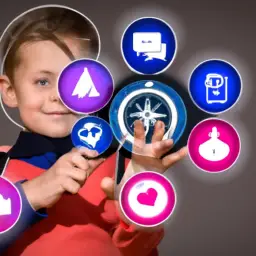As a parent, you want your child to succeed in life. You want them to be resilient, persevere through challenges, and be emotionally intelligent. But, have you considered the role grit and emotional intelligence play in their development?
Grit refers to the ability to maintain passion and perseverance towards long-term goals, while emotional intelligence is the capacity to be aware of, control, and express one’s emotions, and to handle interpersonal relationships judiciously.
Research has shown that both grit and emotional intelligence are critical factors that impact a child’s development. Children with high levels of grit are more likely to achieve success in academic, personal, and professional pursuits. Conversely, emotional intelligence is associated with better social skills, mental health, and academic performance.
Thus, taking steps to nurture both grit and emotional intelligence in your child from an early age can have a significant impact on their future success and wellbeing. In this article, we will explore the research on grit and emotional intelligence and how they can influence behavior, as well as provide tips on how to foster these qualities in your child.
Key Takeaways
- Grit and emotional intelligence are critical factors in a child’s development and future success.
- Developing problem-solving, decision-making, resilience, adaptability, and empathy skills are crucial for overcoming challenges and achieving goals.
- Children with high levels of grit and emotional intelligence are more likely to succeed academically, socially, and professionally.
- Parents and caregivers can promote these qualities in children to help them thrive in the face of life’s challenges.
Understanding Grit
Grit, while commonly associated with perseverance, actually encompasses a wider range of qualities such as resilience, passion, and a growth mindset. Developing perseverance is a crucial aspect of grit that involves sticking to long-term goals despite obstacles and setbacks. This requires a certain level of resilience and determination, as well as the ability to bounce back from failures and learn from them.
In addition to perseverance, having a growth mindset is another key component of grit. This means viewing challenges as opportunities for growth and embracing the process of learning and improvement.
Children who develop grit early on are more likely to succeed academically and in their personal lives, as they are better equipped to handle obstacles and setbacks. By fostering a growth mindset and teaching children to persist in the face of challenges, we can help them develop the perseverance and resilience needed to succeed in all aspects of life.
Emotional Intelligence Explained
So, you want to know about emotional intelligence?
Well, emotional intelligence refers to the ability to understand and manage one’s own emotions, as well as the emotions of others.
There are a few components that make up emotional intelligence, including self-awareness, self-regulation, motivation, empathy, and social skills.
Developing emotional intelligence can help you build better relationships with others, cope with stress and challenges, and communicate more effectively.
Definition and Components
Emotional intelligence is a crucial factor in a child’s overall development, consisting of a set of skills that help them understand and manage their emotions. The defining characteristics of emotional intelligence include self-awareness, self-regulation, social awareness, and relationship management. These skills enable children to recognize their emotions, understand the emotions of others, and regulate their own emotional responses.
Emotional intelligence also helps children to build positive relationships with others, communicate effectively, and make sound decisions. The developmental benefits of emotional intelligence are numerous. Children who possess high levels of emotional intelligence are better equipped to handle stress and adversity, as they are able to regulate their emotions and cope with difficult situations.
They also tend to have better social skills and are more likely to form positive relationships with their peers. Additionally, emotional intelligence is linked to academic success, as children who are able to understand and manage their emotions are more focused and better able to learn. Overall, emotional intelligence is a critical component of a child’s development, with lifelong implications for their wellbeing and success.
Relationship Building Skills
You’ll need to focus on developing strong relationship building skills to connect with others and establish meaningful connections that can last a lifetime.
One of the most important skills to develop is active listening. This means paying attention to what the other person is saying, asking questions to clarify, and showing empathy and understanding. When you actively listen, you show the other person that you value their thoughts and feelings, which can help build trust and respect.
Another important skill is conflict resolution. It’s natural to have disagreements with others, but it’s important to learn how to resolve conflicts in a healthy way. This means staying calm, listening to the other person’s perspective, and working together to find a solution that works for everyone.
When you can resolve conflicts in a positive way, you can strengthen your relationships and build a foundation of trust and respect that can last a lifetime.
Coping with Stress and Challenges
Coping with stress and challenges can be tough, but it’s important to remember that everyone goes through difficult times.
As a child, you may face various situations that can cause stress and anxiety, such as exams, peer pressure, family problems, and more. However, with the right coping mechanisms, you can overcome these challenges and emerge stronger.
One effective way to cope with stress is through mindfulness techniques. These involve being aware of your thoughts, feelings, and sensations in the present moment, without judgment. By practicing mindfulness regularly, you can reduce stress levels, improve focus and concentration, and enhance emotional regulation.
Additionally, relaxation strategies such as deep breathing, progressive muscle relaxation, and visualization can also help you calm your mind and body, and reduce stress. By incorporating these techniques into your daily routine, you can build resilience and cope better with life’s challenges.
The Research on Grit and Emotional Intelligence
Let’s dive into how grit and emotional intelligence can shape a child’s growth and development. Research has shown that both grit and emotional intelligence play significant roles in a child’s success and well-being.
In education, students who possess high levels of grit and emotional intelligence are more likely to persevere through challenges and setbacks, leading to higher academic achievement. Similarly, in the workplace, individuals with high levels of grit and emotional intelligence are more likely to succeed in their careers, as they’re able to handle stress and navigate complex social situations.
Grit, defined as the ability to persevere through obstacles and maintain long-term goals, and emotional intelligence, defined as the ability to recognize and manage one’s own emotions and the emotions of others, are both important traits for children to develop. These skills not only lead to success in academics and careers, but also in personal relationships and overall well-being.
As parents and educators, it’s important to cultivate and foster these skills in children, as they have a significant impact on their future success and happiness.
The Impact of Grit and Emotional Intelligence on Behavior
Now we’ll explore how grit and emotional intelligence impact your behavior.
By developing self-control and impulse management skills, you can better regulate your emotions and reactions to challenging situations. Additionally, improving your decision-making and problem-solving abilities can help you navigate complex situations with greater ease. Finally, building resilience and adaptability can help you bounce back from setbacks and maintain a positive attitude in the face of adversity.
Self-Control and Impulse Management
When kids learn to manage their impulses, they can navigate social situations more successfully and make better decisions. By mastering self-control and impulse management, children can develop skills that will help them in all aspects of their lives.
Delayed gratification is a key aspect of self-control. It teaches children to wait for things they want, even if it means delaying gratification.
Temperament modulation is another important skill that helps children manage their impulses. It involves recognizing and regulating their emotions, so they can make better decisions. When children learn to control their temperaments, they can better navigate social situations, and interact with others in a more positive way.
Additionally, self-control and impulse management can lead to better academic performance, as children can focus on their studies and complete tasks more efficiently. These skills can help children throughout their lives, as they learn to make better decisions and navigate the challenges they will inevitably face.
Decision Making and Problem Solving
You can improve your ability to make decisions and solve problems by practicing these skills regularly. Problem-solving strategies are essential in life, as they help you tackle complex issues and make informed decisions.
The first step to becoming a better problem solver is to identify the problem and understand its underlying causes. Once you have a clear understanding of the problem, you can then start brainstorming possible solutions. It’s essential to evaluate each solution objectively and measure its potential outcomes. This approach will help you identify the most viable solution and take appropriate action.
Decision-making skills are also critical in life, as they help you make informed choices. The first step to developing good decision-making skills is to understand the importance of weighing the pros and cons of each option. Once you have a clear understanding of the potential outcomes, you can then evaluate each option objectively.
It’s also essential to consider the long-term consequences of each decision, as this will help you make informed choices that align with your goals and values. By regularly practicing problem-solving strategies and decision-making skills, you can improve your ability to make informed choices and tackle complex issues.
Resilience and Adaptability
Developing resilience and adaptability skills is crucial for overcoming challenges and bouncing back from setbacks, allowing you to thrive in the face of adversity.
Building resilience involves developing a mindset that views challenges as opportunities for growth, rather than as insurmountable obstacles. When faced with difficult situations, it’s important to approach them with a problem-solving attitude and a willingness to learn from the experience.
This can involve seeking support from others, practicing self-care, and developing coping strategies that help you manage stress and maintain a positive outlook.
Fostering adaptability involves developing the ability to adjust to changing circumstances and environments. This includes being open to new ideas and perspectives, and being willing to take risks and try new things.
Adaptability also involves being able to cope with uncertainty and ambiguity, and being able to learn from failure and setbacks. By building resilience and fostering adaptability, you can develop the skills and mindset necessary to navigate life’s challenges and setbacks, and to emerge stronger and more resilient in the face of adversity.
Nurturing Grit and Emotional Intelligence in Children
Fostering grit and emotional intelligence in children is crucial for their growth and success in life. Grit refers to the ability to persevere and maintain effort towards long-term goals, despite setbacks and obstacles. Emotional intelligence, on the other hand, is the ability to understand and manage one’s own emotions, as well as the emotions of others. These two traits are essential for children to develop in order to navigate the ups and downs of life and achieve their full potential.
To nurture grit and emotional intelligence in children, parents and caregivers can focus on building resilience and fostering empathy. Resilience is the ability to bounce back from adversity, and can be developed by encouraging children to take on challenges and learn from failure. Empathy, meanwhile, involves understanding and caring about the feelings of others, and can be nurtured by modeling kind and compassionate behavior towards others. By promoting these qualities in children, parents and caregivers can help them develop the skills they need to thrive in the face of life’s challenges.
| Building Resilience | Fostering Empathy |
|---|---|
| Encourage taking on challenges | Model kind behavior towards others |
| Teach coping strategies for failure | Encourage perspective-taking |
| Praise perseverance and effort | Encourage emotional expression and validation |
Frequently Asked Questions
How do genetics play a role in the development of grit and emotional intelligence in children?
Genetic predisposition plays a significant role in the development of both grit and emotional intelligence in children. While nature provides the foundation for these traits, nurture also plays a crucial role in their development.
Studies have shown that certain genes are associated with higher levels of grit and emotional intelligence, indicating that genetic factors are a significant contributor to these traits. However, the environment in which a child grows up, including their family, school, and community, also plays a critical role in shaping their development.
Therefore, while genetics may provide a predisposition for these traits, it’s the interplay between nature and nurture that ultimately shapes a child’s level of grit and emotional intelligence.
Can grit and emotional intelligence be developed later in life or are they primarily formed during childhood?
Late development of grit and emotional intelligence is possible through nurture. While genetics play a role in the development of these traits, research shows that environmental factors also have significant influence.
Children who grow up in supportive and challenging environments tend to have higher levels of grit and emotional intelligence. However, it’s never too late to start developing these traits. By practicing self-reflection, setting goals, and seeking out new challenges, individuals can improve their resilience, perseverance, and emotional regulation.
Additionally, interventions such as therapy and coaching can help individuals build these skills. Ultimately, the debate between nature and nurture is ongoing, but it’s clear that both factors play a role in the development of grit and emotional intelligence.
Are there any cultural or societal factors that influence the development of grit and emotional intelligence in children?
When it comes to developing grit and emotional intelligence in children, there are certainly cultural and societal influences to consider.
For example, some cultures may place a greater emphasis on perseverance and resilience, while others may prioritize emotional expression and empathy.
Additionally, societal factors such as access to resources and support systems can play a role in a child’s ability to develop these traits.
It’s important to recognize and address these influences in order to foster healthy emotional and behavioral development in children.
How do environmental factors such as socioeconomic status and access to resources impact the development of grit and emotional intelligence?
Your child’s development of grit and emotional intelligence can be impacted by socioeconomic factors and resource availability. Children from low socioeconomic backgrounds may have limited access to resources such as quality education, healthcare, and extracurricular activities that help develop these skills.
Additionally, living in poverty or experiencing financial instability can lead to chronic stress, which can negatively affect a child’s emotional regulation and resilience. On the other hand, children from higher socioeconomic backgrounds may have more opportunities to develop grit and emotional intelligence through access to resources such as private schools, therapy, and enrichment programs.
However, it’s important to note that these factors don’t determine a child’s ability to develop these skills, as there are many other individual and environmental factors at play.
Can the development of grit and emotional intelligence be hindered or negatively impacted by certain parenting styles or approaches to education?
Parenting styles and educational approaches have a significant impact on the development of grit and emotional intelligence in children. The way parents interact with their children and the methods used in schools can either hinder or enhance these important traits.
For example, authoritarian parenting, which involves strict rules and punishments, has been linked to lower emotional intelligence in children. On the other hand, authoritative parenting, with a focus on warmth and support, has been associated with higher levels of emotional intelligence.
Similarly, educational approaches that prioritize memorization and rote learning may not foster grit, while approaches that encourage critical thinking and problem-solving can promote it.
While genetics also play a role in the development of these traits, it’s clear that nurture has a significant impact as well.
Conclusion
So now that you know all about grit and emotional intelligence and how they impact child development, what’s next?
The good news is that both of these traits can be nurtured and developed in children. It’s important to encourage your children to set goals and work towards them, even if they face obstacles and setbacks along the way.
Praising effort rather than just results can also help them develop a growth mindset and a willingness to persevere through challenges. In addition, you can help your children develop their emotional intelligence by modeling empathy, active listening, and open communication.
Encouraging them to identify and express their own emotions in a healthy way can also help them build stronger relationships and better cope with stress and adversity.
By fostering grit and emotional intelligence in your children, you can help set them up for success in all areas of life.

















































































































